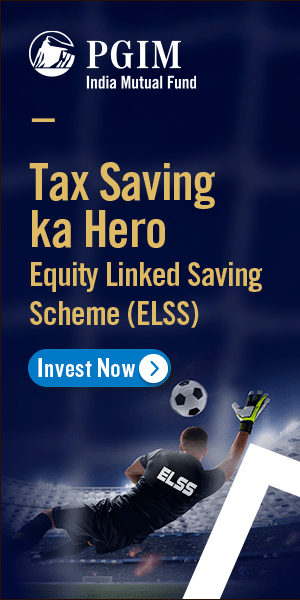At HSBC Asset Management ESG analysis is integrated throughout the investment process and across our whole product suite
BFSI Industry Interview

Mr. Angus Parker, Head of Developed Markets Equity Team, HSBC Global Asset Management, London
ESG investment is a new concept for average retail investors in India. For the benefit of investors and financial advisors, please explain what ESG is and why it is beneficial for investors?
ESG stands for Environmental, Social and Governance and is often used as short-hand for a set of factors relating to a company’s products or practices that investors use, in addition to financial metrics, to assess potential investments.
Environmental criteria consider how companies manage their impact on the environment; social criteria examine how it manages relationships with employees, clients and communities, and governance deals with how companies are governed or managed.
ESG investing considers issues in order to preserve capital and deliver sustainable growth whilst enabling the transition to a sustainable global economy. It is our belief, along with many in the industry, that these factors may increasingly affect the value of all investments and are critical to making sound investment decisions.
Why should an investor look at a Climate Change Fund?
In recent years there has been a rapid increase in interest from both mainstream retail and institutional investors. There were investors who were early in recognising the threat posed by climate change but equally there were many others who dismissed the scaremongering as a product of “bad science”. However, more recently the balance has definitively shifted with research and changing weather patterns combining to erode any residual scepticism. A self-reinforcing feedback loop has developed with individuals, companies and governments all playing their part in pressurising behavioural change. Social media has played a critical role in this process with companies, in particular, now acutely aware of the potential reputational damage that can result from inappropriate activity. Many companies have been quick to highlight their green credentials but should this prove to lack authenticity it runs the risk of being called out as Greenwashing. The actions of investors demanding investment products that recognise these challenges are merely a reflection of this attitudinal change and the real investment implications highlighted above. Climate change threatens the sustainability of many business models while at the same time creating exciting investment opportunities.
There is a belief among some investors that Earnings per Share (EPS) growth is the most important factor for shareholders / investors and that focus on ESG may compromise investment returns. What are your views?
Focusing purely on earnings growth may result in superior returns in the short term, however, to deliver over the longer term, a balance with other stakeholders must be maintained. It is important to realise that companies don’t exist in a vacuum. Their success is dependent on how they manage their relationships with an array of parties including; customers, employees, suppliers, regulators and of course the environment. It is our view, that by treating all stakeholders in a sustainable manner a company is likely to be a long term success, however, treat just one in a suboptimal way, may lead to suboptimal performance.
You are launching HSBC Global Equity Climate Change Fund of Fund.. How is it different from a regular ESG fund?
At HSBC Asset Management, ESG analysis is not considered a distinct investment philosophy, it is integrated throughout the investment process and across our whole product suite. ESG has not been looked only as a risk mitigation tool but also a source of alpha generation.
This type of analysis is present in the underlying fund but the strategy has a particular focus on innovative companies that provide solutions to support decarbonisation and the energy transition.
Almost all the ESG funds in India are fairly new; in fact, most of the ESG funds have not yet completed a year. It can be difficult for investors / advisors to compare and select funds in absence of long term track record. Your HSBC Global Equity Climate Change Fund of Fund will invest in HGIF-Global Equity Climate Change. For benefit of investors, please describe the underlying fund.
The HGIF Global Equity Climate Change is a purely thematic approach to climate change, focusing explicitly on the transition to a low carbon economy with additional targets of a lower carbon footprint and higher ESG rating than the broader global equity market.
All holdings in the underlying fund, each of which we believe is likely to have a material impact on reducing the build-up of greenhouse gases, are aligned to at least one of nine sub themes that have been identified through which to address the climate challenge. These range from renewable energy and energy efficiency to green buildings, clean transport and natural capital.
Our approach results in a high conviction, concentrated portfolio of holdings from across all geographies, sectors and market cap spectrum. The underlying fund has a long track record, dating back to 2007, and as of December 2020 it has delivered 1st quartile performance over a 1-year, 3-year and 5-year time frame relative to Morningstar Global Large Cap peers. Furthermore, the underlying fund benefits from HSBC’s commitment to responsible investing, team of experts and extensive resources.
*Past performance may or may not sustain in future.
What is your advice for investors who may be looking to invest in HSBC Global Equity Climate Change Fund of Fund? What should be recommended minimum investment horizon.?
It would be a sound decision for HSBC Global Equity Climate Change Fund of Fund to make up part of an investor’s allocation to global equities. Given the existential threat that greenhouse gas accumulation in the atmosphere presents, exposure to the theme seems a good way of ensuring that generations to come have somewhere to invest in the future. As with all equity investments of underlying fund, this should be seen as long term in nature allowing the theme to drive returns and compounding to work its magic.

Mutual fund investments are subject to market risks, read all scheme-related documents carefully.
Recent Interviews
-
In conversation with Mr Vaibhav Shah Head Products: Business Strategy & International Business Mirae Asset Mutual Fund India
Apr 18, 2025
-
In conversation with Mr Kaustubh Sule Senior Fund Manager Fixed Income with Groww Mutual Fund
Apr 18, 2025
-
In conversation with Mr Abhishek Tiwari Chief Business Officer of PGIM India Mutual Fund
Apr 5, 2025
-
In Conversation with Mr Akhil Chaturvedi Executive Director & Chief Business Officer with Motilal Oswal Mutual Fund
Mar 26, 2025
-
In conversation with Mr Rohit Seksaria Fund Manager Equity with Sundaram Mutual Fund
Mar 7, 2025
Fund News
-
Axis Mutual Fund joins ONDC Network to Expand Access to Mutual Fund Investments
Apr 18, 2025 by Axis Mutual Fund
-
Nippon India Mutual Fund launches Nippon India Nifty 500 Quality 50 Index Fund
Apr 18, 2025 by Advisorkhoj Team
-
Nippon India Mutual Fund launches Nippon India Nifty 500 Low Volatility 50 Index Fund
Apr 18, 2025 by Advisorkhoj Team
-
RBI Monetary Policy: RBI changes policy stance and lowers rate
Apr 9, 2025 by Axis Mutual Fund
-
Kotak Mahindra Mutual Fund launches Kotak Nifty Top 10 Equal Weight Index Fund
Apr 7, 2025 by Advisorkhoj Team




